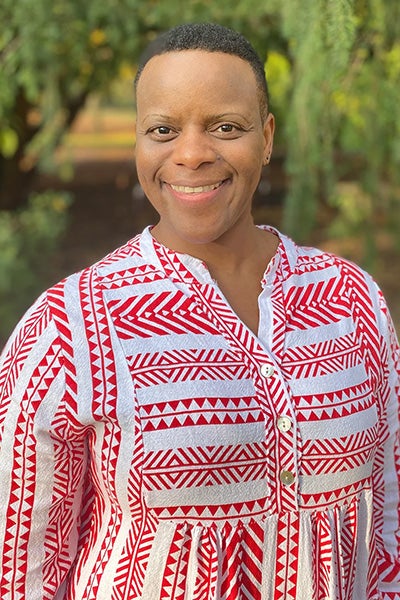The University of Rhode Island College of Health Sciences recently welcomed Assistant Professor Nekehia Quashie to the college. Specializing in family dynamics, especially as it relates to health care, Quashie has joined the Department of Health Studies. Learn more about one of the College’s newest professors:
Education: Ph.D. Sociology, University of Utah; M.S. Sociology, University of Utah; B.S. Psychology, Florida Memorial University.
Recent experience: Postdoctoral researcher, TU Dortmund University, Dortmund, Germany; Lecturer and Postdoctoral research fellow, Chulalongkorn University, College of Population Studies; Graduate instructor, University of Utah.
Teaching Focus: Quashie is teaching “Exploring Global Health” in the Department of Health Studies, and will teach “Introduction to Health Studies” to undergraduate students going forward.
Research focus: The focus of Quashie’s research is on family dynamics and health, with a comparative international perspective. Growing up in Trinidad & Tobago, and studying and working in Europe, Asia and the United States, has given Quashie a unique global perspective. She examines how societal conditions such as social welfare policy and socioeconomic inequality shape family support and caregiving among older adults across different countries and societies.
Quashie is interested in support patterns — how children support their aging parents in different countries — with a specific focus on proximity and family size. Specifically, one study looks at how the number of children in a family is linked to the parents’ health in later life. Children are still a major support for older adults in many parts of the world, and the size of the family can impact the level of care older adults receive, especially considering different countries have different healthcare systems and resources.
Quashie also aims to improve statistical analysis of health care across Latin America and the Carribbean. One specific project aims to examine how family dynamics in her native Trinidad & Tobago — including size, structure and relationships — are associated with health and well-being in later life, especially within the context of the COVID-19 era. She plans to initiate a pilot program of statistical analysis that could be used as an example for a larger study across a broader region.
“Many countries are going to experience major shortfalls in finances, which has major implications for social welfare supports,” Quashie said. “That will affect all generations in some capacity, especially in a country like Trinidad and Tobago, where there is not a lot of well-supported social welfare support for older adults. In general, people are going to be relying even more on family, and I want to explore how reliance on family support will relate to health in the country. It can ideally be a model for other Carribean countries. My long-term goal will be to have comparable data across Carribbean countries.”
Why URI?: “The position felt very fitting. They wanted someone who’s focus is on health disparities with a global lens to expand the global health specialization. My specialty has always been a global comparative focus on families and health. It was just the most perfect fit in terms of the specificity of the program offerings,” Quashie said. “There is a lot of research here, and we all have a lot in common, but we also have clear focus areas. I’ll be able to work with people, and also keep my own focus. I really wanted that kind of mix. URI just really felt solid.”

